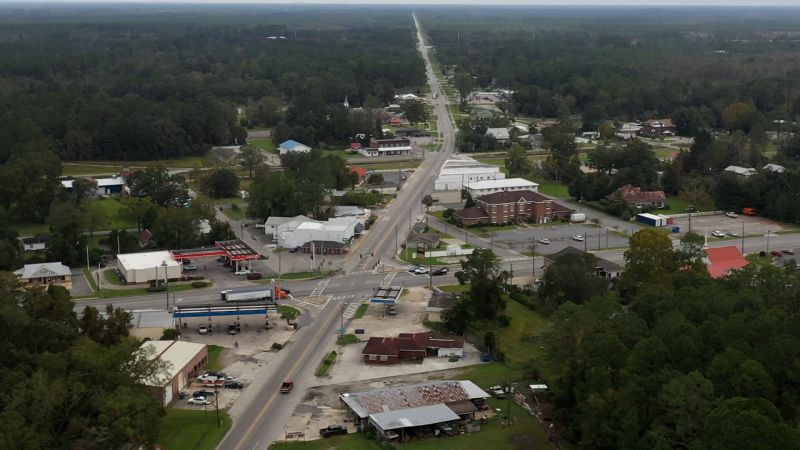In a county in Georgia known as Brantley County, 90% of its residents consistently vote Republican, making it potentially the most pro-Trump area in any battleground state. CNN’s Elle Reeve decided to visit this county to investigate what has caused this overwhelming show of support for the Republican party, specifically for President Trump. The high level of support for the Republican party in Brantley County is a stark contrast to the political leanings of the rest of the state, which is generally more evenly divided between Republicans and Democrats. This unique situation piqued Reeve’s curiosity and led her to dig deeper into the factors fueling this groundswell of Republican support in Brantley County.
Upon arriving in Brantley County, Reeve quickly noticed the strong Republican presence in the area. Republican signs and flags adorned the streets, and residents were vocal about their support for the party and President Trump. Reeve spoke with various community members to understand what motivated them to vote Republican, and the answers she received were varied but pointed to a few key themes. Some cited their support for Trump’s policies, particularly on issues such as immigration and gun rights, while others praised the President’s leadership style and his outspokenness. Additionally, Reeve discovered that religion played a significant role in shaping the political beliefs of many residents, with some seeing the Republican party as the party that aligns most closely with their Christian values.
One of the factors that Reeve identified as contributing to the strong Republican support in Brantley County was the sense of community and camaraderie among residents. Many people in the county emphasized the importance of small-town values, and viewed the Republican party as a champion of those values. This sense of community was further reinforced by the social networks and institutions within the county, such as churches and community organizations, that played a role in shaping and reinforcing residents’ political beliefs. Additionally, Reeve noted that the county’s demographics, which skew older and more rural, likely played a role in the overwhelming support for the Republican party, as these groups have traditionally been more conservative in their political beliefs.
Despite the overwhelmingly Republican leanings of Brantley County, Reeve also encountered some dissenting voices in her interviews. Some residents expressed concerns about President Trump’s divisive rhetoric and his handling of various crises, such as the COVID-19 pandemic. However, these voices were in the minority, and the prevailing sentiment in the county remained firmly in support of the Republican party and President Trump. Reeve’s observations in Brantley County shed light on the complex web of factors that contribute to shaping political beliefs and behavior in a community, and illustrate the importance of understanding the unique cultural, social, and demographic dynamics at play in determining voting patterns.
In conclusion, Brantley County, Georgia stands out as a striking example of the deep-rooted political divisions that exist within the United States, with 90% of its residents consistently voting Republican. The county’s strong support for the Republican party, particularly for President Trump, is fueled by a combination of factors including policy preferences, leadership style, values alignment, community dynamics, and demographics. Through her visit to Brantley County, Elle Reeve was able to gain insights into the motivations and beliefs of the residents that make up this staunchly Republican stronghold. As the political landscape in the United States continues to evolve, understanding the complexities of local political dynamics such as those seen in Brantley County will be crucial in deciphering the broader national trends and divisions that shape American democracy.


